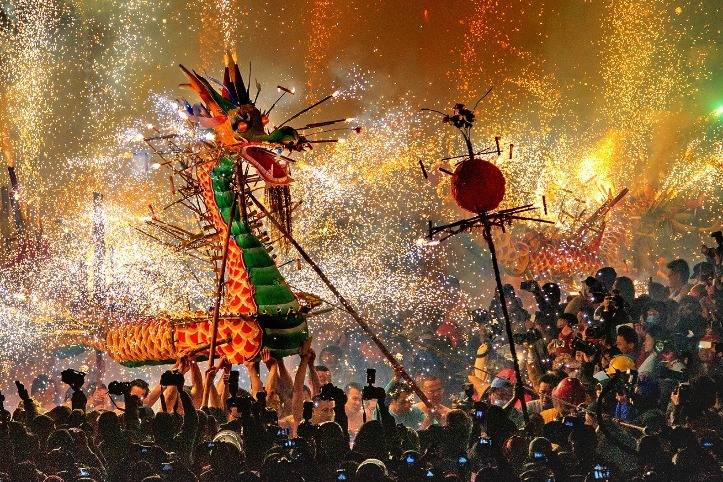AI with a human touch


Digital humans are at the forefront of developing AI technologies, bringing both newfound possibilities and concerns, reports Wang Xingwei.
Imagine paying just dozens of yuan a month to chat and even have phone calls with your favorite celebrity — or to be more precise, his or her "AI clone".This might become possible thanks to the cutting-edge technology of AI-generated content (AIGC) and AI beings. With the rapid development of AI technologies, the clone could appear very real as it is able to accurately mimic a natural person's voice, behavior and even personality.
The idea of digital humans is not something new, especially for Generation Z, who have been dubbed "digital natives".
For example, rooted in anime and Japanese idol culture, "fictional singer" Lynn Minmay from the animated film Macross, has gained real-world success among anime, comics and gaming (ACG) fans and is considered one of the earliest virtual idols. There is also Hatsune Miku, a Japanese virtual singing idol, who has gone even further and stirred virtual idol sensation worldwide. For China's Gen Zers, what makes this trend significant is the combination of ACG culture and traditional Chinese art forms, with the Chinese virtual idol Luo Tianyi being an example.
But digital humans are more than that.
A digital human is a human being that exists in the digital world. It is created by making digital copies of the movements of a chosen human model and then accurately reconstructing the figure in the digital world. With the help of 5G, AI and VR technologies, digital humans nowadays range from virtual hosts to virtual idols and brand spokespeople across various sectors such as radio, television, internet, finance and retail. For instance, China Daily has its own digital journalist, Yuanxi, who can speak English and covers the fascinating world of Chinese culture.
So how is a digital human "born"? How can these digital humans take over online platforms and capture so many young people's hearts? What will happen if more humans are replaced by virtual equivalents and if the boundaries between reality and virtuality are blurred? Here we invite several professionals — and even an AI being — to explore these questions.




































